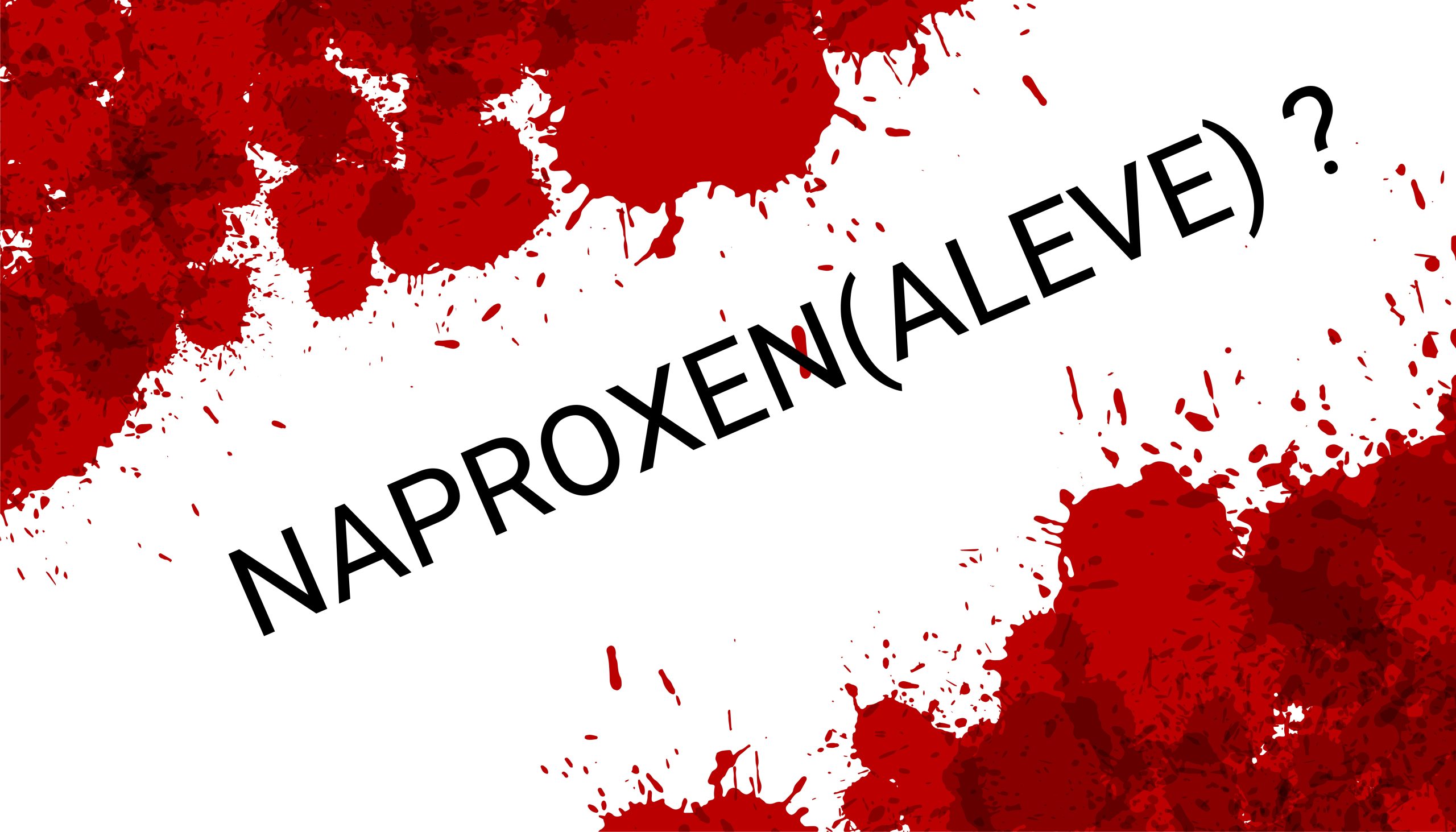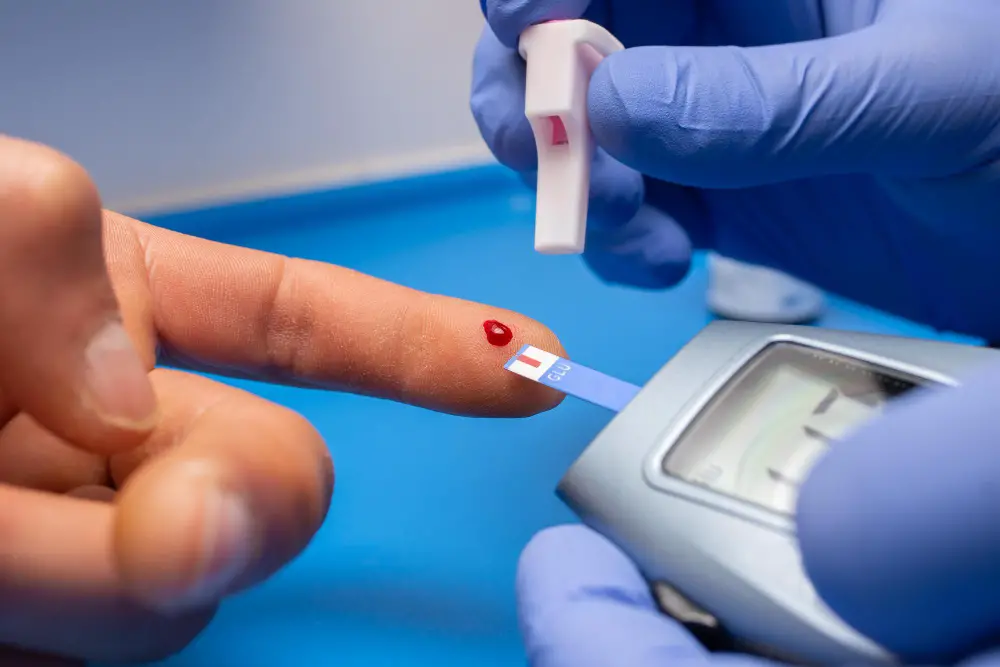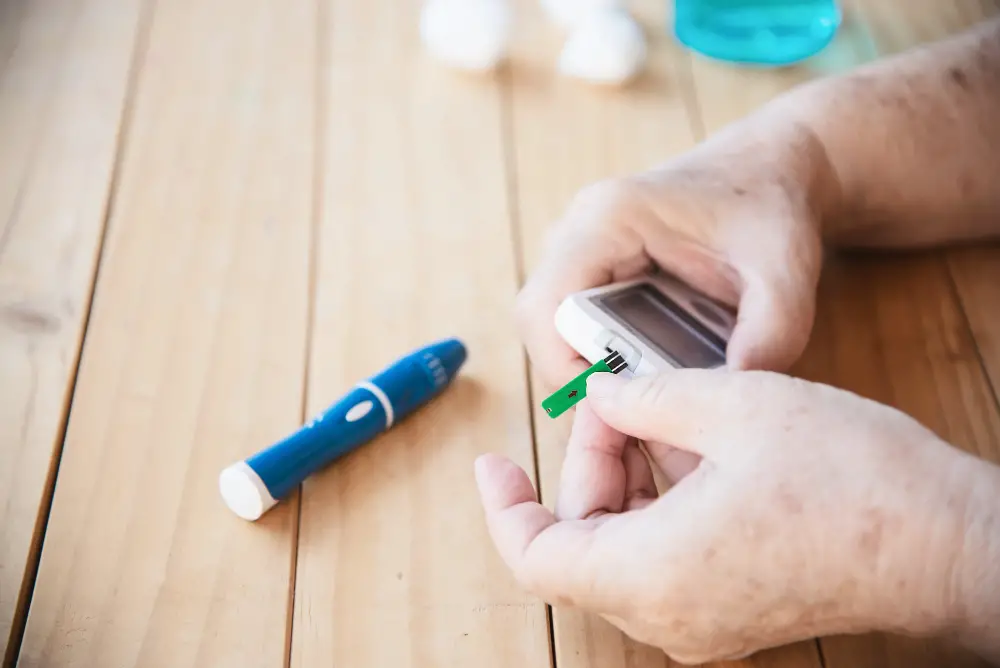
Table of Contents
Is Aleve (Naproxen) a blood thinner ?
Aleve or Naproxen is a nonsteroidal anti-inflammatory drug with a blood thinning effect similar to aspirin. It acts on the arachidonic acid pathway & inhibits the cyclooxygenase enzyme & thus the formation of thromboxane (TXA2), which is involved in platelet aggregation. This induces a decrease in platelet aggregation and hence a blood thinning effect. However, Aleve(naproxen) is not used as a blood thinner but instead for pain control and treating inflammation.[1]
As opposed to Aspirin, the blood thinning effect of naproxen is relatively weaker.[1]
Aspirin’s blood-thinning or anti-platelet effect is for a longer duration as it causes irreversible inhibition of cyclooxygenase enzyme.[1]
Whereas, Aleve(naproxen) or other NSAIDs cause reversible inhibition of cyclooxygenase enzyme. & hence has a shorter duration of action.[1]
What are Platelets
Platelets are the blood cells involved in blood clotting.
They are of very small size and can be seen only under a microscope.
They are disc-shaped.
The normal platelet count is 150,000-450,000.
When a patient bleeds, the platelets accumulate at the bleeding site to form a platelet plug and control the bleeding.
People with platelet disease can have abnormal bleeding patterns.
Bleeding disorders can have both qualitative and quantitative platelet defects.
Enhanced platelet activity in the body can cause clot formation that can have harmful effects.
Sometimes it can cause life-threatening complications like stroke & heart attack.
What is thromboxane A2
Thromboxane A2 (TXA2) is a type of eicosanoid, which is a group of signaling molecules involved in various physiological processes in the body.
TXA2 is synthesized from arachidonic acid and has a potent vasoconstrictive effect, causing blood vessels to narrow.
It also promotes platelet aggregation, which is the process by which platelets stick together to form clots.
TXA2 plays a role in the development of blood clots, which can lead to thrombosis and other cardiovascular events.
It is produced by platelets and is involved in the formation of clots in response to injury or damage to blood vessels. Inhibition of TXA2 synthesis is a target for antiplatelet and antithrombotic therapy, as it can help prevent the formation of blood clots and reduce the risk of heart attack, stroke, and other cardiovascular events.
What are blood thinners?
Blood thinners are medications that help prevent blood clots from forming in the blood vessels.
They are also known as anticoagulants.
Blood clots can obstruct blood flow and increase the risk of heart attack, stroke, and other serious health problems.
Blood thinners work by preventing or slowing down the process of coagulation, which is the normal mechanism that causes blood to clot.
This helps reduce the risk of clots forming in the blood vessels, which can lead to serious health problems. Some common blood thinners include warfarin, heparin, dabigatran, rivaroxaban, apixaban, and edoxaban.
It’s important to note that blood thinners do not make the blood thinner, but rather slow down the coagulation process and make it less likely for clots to form.
It’s also essential to follow the instructions of your healthcare provider when taking blood thinners, as they can increase the risk of bleeding if not used properly.
Anti-platelets vs anti-coagulants
Anti-platelets and anti-coagulants are two different types of medications that are used to prevent blood clots from forming.
Anti-platelets are medications that interfere with the ability of platelets to stick together and form clots. They work by preventing the activation of platelets, which helps to reduce the risk of clots forming in the blood vessels. Examples of antiplatelet medications include aspirin, clopidogrel, ticagrelor, and dipyridamole.
Anti-coagulants, on the other hand, work by changing the chemical balance in the blood to prevent clots from forming.
Unlike anti-platelets, which only affect platelets, anti-coagulants affect the entire clotting system.
The choice of which type of medication to use depends on the individual and their specific medical condition.
Both types of medications can have serious side effects, such as an increased risk of bleeding, and it’s important to follow the instructions of your healthcare provider when taking these medications.
Other FAQs about Naproxen
Can Naproxen and Tylenol be taken together?
Yes, naproxen and acetaminophen (Tylenol) can be taken together as they are different types of pain relievers and work in different ways to relieve pain.
However, it is always recommended to consult with a doctor or a healthcare provider before taking any combination of medications to ensure safety and avoid potential drug interactions.
Can you take Ibuprofen and Naproxen together?
It is generally not recommended to take ibuprofen and naproxen together as they are both nonsteroidal anti-inflammatory drugs (NSAIDs) and have similar mechanisms of action.
Taking both drugs at the same time can increase the risk of side effects such as stomach ulcers, bleeding, and kidney problems.
It’s best to consult a healthcare provider before taking any combination of medications to ensure safety and determine the best course of treatment.
If someone has taken ibuprofen and naproxen together by mistake, he or she should be monitored for possible side effects.
Can Naproxen be taken on an empty stomach?
Naproxen should not be taken on an empty stomach as it can damage the stomach and cause side effects like nausea, heartburn, and indigestion.
If it is available in combination with esomeprazole, only then it can be taken on an empty stomach.
What is esomeprazole?
Esomeprazole is a medication that belongs to the class of drugs known as proton pump inhibitors (PPIs).
It is used to treat gastroesophageal reflux disease (GERD) and other conditions where there is too much acid in the stomach.
Esomeprazole works by decreasing the amount of acid produced by the stomach, thereby reducing the symptoms of heartburn, indigestion, and other acid reflux-related symptoms.
It is available in the form of oral capsules and is taken by mouth, usually once a day, with or without food. It’s important to follow the instructions of your healthcare provider regarding the use of esomeprazole.
Take Home
Naproxen(Aleve) should be avoided in patients already taking blood thinners & should be taken only after doctors advise.
Patients having any bleeding disorder are also at an increased bleeding risk while using naproxen and should consult their doctor.




